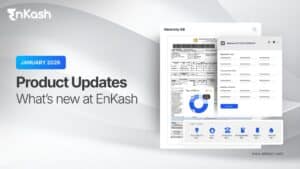Opening a current account is an important step for anyone running a business or practicing a profession. It gives you the freedom to handle day-to-day transactions smoothly, from paying suppliers to collecting customer payments. Indian banks follow strict rules set by the Reserve Bank of India, so you will need to prepare specific documents before applying.
This guide explains everything in detail, from the basic definition of a current account to the complete list of papers required for different types of business structures. You will also find answers to common questions, such as “Can I open a current account without GST?” and what banks mean by current account KYC documents.
By the end, you will know exactly what to keep ready and how to avoid mistakes that delay approval. This way, opening a current account in India will feel less like a complicated task and more like a straightforward process.
What Is a Current Account
A current account is a bank account made for handling business money. It is designed to support many transactions every day. Unlike a savings account, it does not limit how often you can deposit or withdraw funds. This is why traders, shop owners, service providers, and large companies rely on it.
The main purpose of a current account is convenience. You can pay suppliers, issue cheques, collect customer payments, and manage bills with ease. Many accounts also provide overdraft facilities, so you can withdraw more than the balance if the bank approves.
The difference between a current account and a savings account is clear. A savings account helps individuals build funds and usually earns interest. A current account focuses on smooth operations for businesses and does not aim to grow money through interest.
For anyone who runs a business, opening a current account is the practical choice. It builds trust with clients and suppliers, as payments are made through a registered business account instead of personal banking.
RBI KYC Rules That Shape Current Account Requirements
Before you open a current account in India, the bank checks your identity and business details under the Reserve Bank of India’s guidelines. These checks are known as current account KYC documents. They are part of the larger bank requirements for current account opening and apply to individuals as well as every type of business. Understanding them makes the current account opening requirements clearer and helps you prepare the right papers in advance.
Here are the rules explained in detail:
- Officially Valid Documents (OVDs) for Individuals
To meet the documents required for current account opening, banks accept only specific identity and address proofs. These include a passport, Aadhaar card, voter ID, driving licence, and a job card under the rural employment scheme. Some records from the National Population Register are also valid. At least one of these must be submitted to prove who you are and where you live. - Permanent Account Number (PAN)
A PAN is compulsory for anyone looking to open a current account. It connects the account with the Income Tax Department. If a PAN is not yet available, a declaration form (Form 60) may be used temporarily, but banks will later insist on the actual PAN. This is a non-negotiable part of current account KYC documents. - Entity Proof for Businesses
For firms and companies, the business current account documents go beyond personal identity. A sole proprietor must show trade licences or GST certificates. A partnership submits its partnership deed. A company presents its incorporation certificate. These are central to the documents required for current account opening and serve as proof that the entity exists legally. - Beneficial Ownership Disclosure
Another part of the current account opening requirements is to declare who controls the business. Any person holding ten percent or more stake must provide their identity and address proof. This ensures transparency in the banking system. - Authorisation and Resolutions
Some entities cannot proceed without formal approval. For companies and LLPs, the board or partners must issue a resolution naming the authorised signatories. This written approval is counted among the critical current account KYC documents. - Modes of Completing KYC
Banks now allow different ways to finish the process. You can visit a branch, submit details online, or complete verification through a video call. No matter the method, the documents required for current account opening remain the same, since all banks must follow the Reserve Bank’s framework.
These rules are the backbone of every application. By keeping the current account opening requirements in mind, businesses can save time and avoid repeated visits to the bank.
Entity-Wise Documents Required for Current Account Opening
The documents required for current account opening depend on the type of business you run. Every entity has its own rules because banks must confirm both the identity of individuals and the legal standing of the business. Knowing the right business current account documents in advance makes it much easier to open a current account without delays.
Sole Proprietorship
For a sole proprietor, the business and the owner are treated as the same person. The current account opening requirements are straightforward but still specific:
- Personal identity and address proof: Any Officially Valid Document such as Aadhaar, passport, voter ID, or driving licence.
- PAN card: This is mandatory for the individual. It links the account with tax records.
- Proof of business existence: Trade licence, Shop and Establishment certificate, GST certificate (if registered), or Udyam registration. These show that the business is genuine.
Recent photographs and the bank’s account opening form.
Here, GST is not compulsory for every case. It only becomes part of the PAN and GST for current account requirements if the business has crossed the turnover threshold set under tax law.
Partnership Firm
For partnerships, banks want documents that prove the firm’s structure and the authority of partners. The common current account KYC documents include:
- Partnership deed signed by all partners.
- PAN of the partnership firm.
- Address proof of the firm, such as a registered lease or utility bill.
- KYC documents of partners who will operate the account.
- Authorisation letter from all partners naming the signatories.
These documents assure the bank that the partnership is real and that everyone agrees on who will handle the account.
Read more: Partnership Deed.
Limited Liability Partnership (LLP)
LLPs are registered under the Ministry of Corporate Affairs, so their paperwork is slightly more formal. The business current account documents for LLPs are:
- Certificate of Incorporation issued by the Registrar of Companies.
- LLP Agreement signed by the partners.
- PAN of the LLP.
- Proof of the registered office address.
- KYC documents of designated partners and the individuals authorised to operate the account.
- Resolution or letter of authorisation on LLP letterhead naming the signatories.
These documents confirm both the legal registration and the people in charge of handling funds.
Private and Public Limited Companies
For companies, the current account opening requirements are the most detailed. Banks must check both the company’s legal status and the identity of its directors. The standard current account KYC documents include:
- Certificate of Incorporation from the Registrar of Companies.
- Memorandum and Articles of Association (MOA and AOA).
- PAN of the company.
- Registered office address proof, such asa lease deed, electricity bill, or property tax receipt.
- Board resolution naming the authorised signatories.
- List of directors with their Director Identification Numbers (DINs).
- KYC documents of signatories and beneficial owners who hold ten percent or more.
This set of papers ensures that the bank knows exactly who owns and controls the company and who is permitted to sign on its behalf.
Read more: What is a Company?
Societies, Trusts, Section 8 Companies, and HUFs
Some organisations follow separate laws, and their business current account documents vary accordingly:
- Societies: Registration certificate, copy of bye-laws, resolution from the managing committee, PAN, and KYC of office bearers.
- Trusts: Trust deed, registration certificate, PAN of the trust, resolution naming signatories, and KYC of trustees.
- Section 8 Companies: Incorporation certificate, PAN, MOA and AOA, licence under the Companies Act, board resolution, and signatory KYC.
- HUFs (Hindu Undivided Families): PAN of the HUF, declaration deed, and KYC of the Karta (head of the family).
These papers help banks confirm the organisation’s legal standing and the authority of those handling the account.
How to Open a Current Account Step by Step
Knowing the exact process makes it easier to open a current account without confusion. Banks follow a standard flow, and if you keep the documents required for current account opening ready, the entire process is smooth. Here is how it usually works in India:
Choose the account type
Decide which type of current account suits your needs. Some banks offer basic current accounts with low minimum balance, while others provide premium options with overdraft and bulk transaction features. Compare these before applying so you know what fits best.
Collect the required documents
Gather the business current account documents that apply to your structure. For a sole proprietor, this could be a Shop and Establishment licence or Udyam registration. For companies, it means incorporation papers, PAN, and board resolutions. Having these ready avoids delays.
Fill the application form
Complete the bank’s account opening form and attach your papers. Most banks allow you to start the process online, though the final step may still need a personal visit or video verification.
Complete KYC verification
The bank will verify your current account KYC documents. This can be done in person at the branch or through a video-based process. The officer checks your identity, address, and authorization to run the account.
Provide initial deposit if needed
Some banks ask for a first deposit to activate the account. This depends on the account type and minimum balance requirements.
Account activation and tools
Once approved, the bank issues your cheque book, debit card, and online banking access. You can now use the account for everyday business transactions.
By following these steps and preparing the current account opening requirements in advance, you can avoid repeated visits to the branch and start using your account quickly.
Types of Current Accounts in India
Banks in India offer different kinds of current accounts to match the needs of businesses. When you plan to open a current account, it helps to know the options so you can choose the right one instead of picking at random. The features, charges, and limits vary from bank to bank, but the broad categories remain the same.
Basic Current Account
This is the simplest type and is usually chosen by small traders, freelancers, or professionals. It has a lower minimum balance requirement but fewer free transactions. It is a good choice if you are just starting out and want to keep your banking simple.
Premium or Privilege Current Account
These accounts are designed for larger businesses with heavy transaction volumes. They come with perks like higher cash deposit limits, free cheque books, bulk payment options, and overdraft facilities. The charges are higher, but the benefits save time and effort.
Segment-Specific Current Accounts
Many banks provide accounts targeted at certain groups such as start-ups, exporters, retailers, or service firms. They may include features like free inward remittances, forex benefits, or discounts on digital payments.
Digital Current Account
Some banks now allow you to complete the application entirely online. You upload the current account KYC documents, complete verification through video, and get activated without visiting a branch. This option is popular with new businesses that prefer speed and convenience.
Understanding these types of current accounts helps you compare and make an informed choice. While some people look for the best bank for a current account based on offers, it is better to focus on features that match your business size and style of work.
Current vs Savings Account: Key Differences
Many people ask about the difference between current and savings accounts because both look similar at first. In reality, they serve very different purposes. A savings account is meant for individuals who want to save money and earn interest on their deposits. A current account is created for businesses and professionals who need frequent, high-value transactions.
Here are the main differences explained simply:
- Purpose
A savings account helps people build personal savings and grow money slowly through interest. A current account focuses on smooth daily operations for a business. It supports payments to suppliers, receipts from customers, and regular cash flow management. - Transaction Limits
Savings accounts have restrictions on the number of free withdrawals and deposits you can make in a month. A current account has no such limits, which makes it practical for businesses that deal with constant payments. - Interest vs Convenience
Savings accounts usually offer interest on the balance, while current accounts do not focus on returns. Instead, they offer services like overdraft, bulk payments, and higher cash handling limits. - Trust and Professionalism
Making payments through a current account builds credibility for a business. Clients and suppliers prefer transactions that come from a registered business account rather than a personal savings account.
Conclusion
Opening a current account in India is a vital step for any business or professional. The process may look strict because banks must follow the Reserve Bank’s KYC framework, but once you know the documents required for current account opening, it becomes much easier to prepare.
Each business type has its own list of current account KYC documents and other proofs, yet the purpose remains the same: to confirm identity, address, and legal standing. By keeping your business current account documents ready, you can save time and avoid mistakes that cause delays.
A current account also builds trust in your business dealings. It separates personal finances from business money and gives you access to services like overdraft, bulk transactions, and digital tools. In short, understanding the current account opening requirements and planning ahead will ensure your banking journey is smooth and professional.
FAQs
1. Why do banks insist on so many documents for a current account?
Banks follow Reserve Bank of India rules to prevent fraud and misuse of funds. The documents required for current account opening help verify identity, address, and business structure. This ensures only genuine entities get access to banking facilities and reduces the risk of money laundering.
2. Are utility bills accepted as proof of address for a current account?
Yes, many banks accept recent utility bills such as electricity, water, or landline bills as proof of address. However, they usually require the bill to be no older than three months. These count as supporting papers in the list of current account opening requirements.
3. What happens if my PAN and Aadhaar details do not match when I apply?
Any mismatch between documents will delay your application. Since PAN and GST for current account verification relies on accurate data, banks require names and addresses to be consistent across all papers. It is best to correct discrepancies before you try to open a current account.
4. Do freelancers and consultants also need a current account?
Freelancers and independent professionals may not be legally required to hold a current account, but it is strongly advised. Payments made through a business account add professionalism and make it easier to track income. They can use licences, Udyam registration, or tax filings as business current account documents.
5. Can a current account be opened online without visiting the branch?
Yes, several banks now allow you to apply online. You upload your current account KYC documents and complete verification through video-based checks. This process is approved by the Reserve Bank and is secure. However, certain entities like trusts may still need a branch visit.
6. Is GST registration checked at the time of opening a current account?
Banks will ask for GST details only if your business is registered. For small traders or service providers under the threshold, GST is not mandatory for current account opening requirements. You can still open a current account without GST by providing other business proofs.
7. Do companies need to submit a board resolution for a current account?
Yes, companies must provide a board resolution that authorises opening of the account and names the signatories. This is a core part of the business current account documents for companies. It ensures only authorised directors or managers can operate the account on behalf of the firm.
8. What role do beneficial owner details play in current account KYC?
The Reserve Bank requires banks to identify anyone holding at least ten percent ownership in a business. These details are submitted as part of the current account KYC documents. This prevents misuse of companies or LLPs by ensuring the real owners are on record with the bank.
9. Can I use my personal savings account instead of opening a current account?
Using a savings account for business is not recommended. Banks may restrict or flag high transaction volumes in savings accounts. A current account is better suited for daily transactions and provides services like overdraft and cheque facilities, which are missing in personal accounts.
10. What mistakes should I avoid when submitting current account documents?
The most common mistakes are missing signatures, expired address proofs, inconsistent names across PAN and Aadhaar, or incomplete authorisation letters. Double-checking your documents required for current account opening before submission will save time. Incomplete or incorrect paperwork is the biggest cause of rejection.










